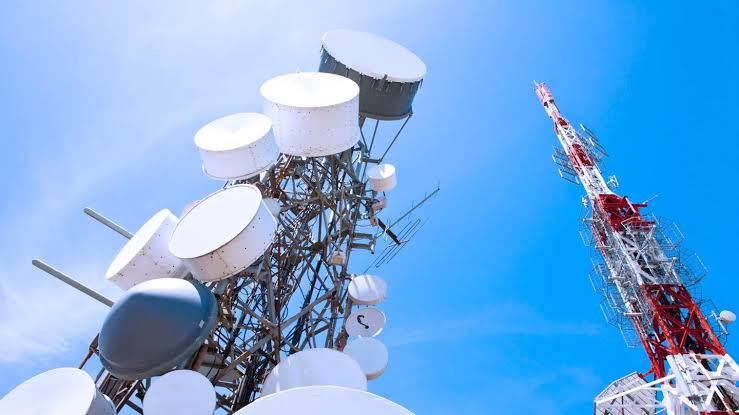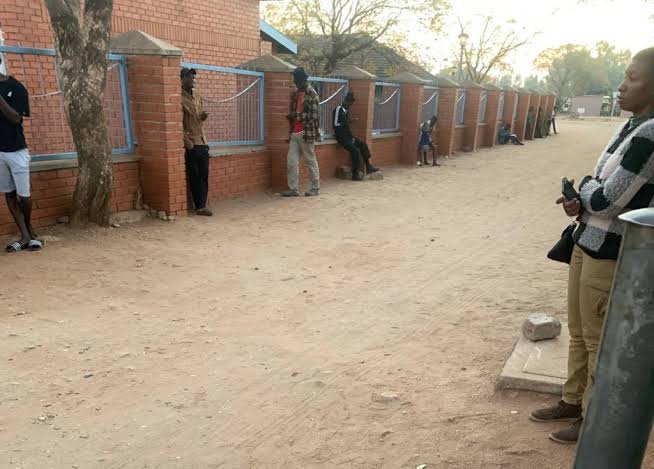Physical Address
60 Ekwema Cres, Layout 460281, Imo
Physical Address
60 Ekwema Cres, Layout 460281, Imo

In Botswana, where internet subscriptions are notoriously expensive, the government’s initiative to provide free WiFi through Botswana’s SmartBots routers has gained more popularity.
With the cost of 10GB of data reaching up to P1400 ($103) in a country where the minimum wage is P1500 ($111), many citizens, particularly the youth, find themselves cut off from essential online resources.
The introduction of Botswana’s Free WiFi Program in 2019 has proven to be a game-changer, especially in light of the increasing demand for internet connectivity.
Five years after its launch, the SmartBots program has attracted over 1.6 million users, contributing to a remarkable increase in internet penetration from 42% in 2019 to 77% in 2025.
This surge is largely attributed to the accessibility provided by SmartBots, particularly for low-income groups.

The routers, which offer speeds of up to 10Mbps, have been installed in more than 1,100 public facilities, including clinics, schools, and traditional courtyards known as dikgotla.
On average, over 130,000 users access the internet through SmartBots each day, and connectivity will soon be expanded to more than 500 villages.
Botswana’s population of 2.4 million is small yet widely dispersed, making it challenging for telecommunications companies to establish infrastructure without passing costs onto consumers.
The SmartBots initiative aims to bridge this digital divide by providing free internet access in public spaces.
For many young people, such as 15-year-olds Kago and Tumelo, SmartBots has transformed their digital experience.
While they initially claimed to use the internet for educational purposes, they also admit to spending considerable time on platforms like YouTube and TikTok.
“We are here every evening because the internet is free, there is no password, and it’s close to where we stay,” Tumelo shared, highlighting the convenience of the service.
The user demographic for SmartBots is diverse, encompassing students, young professionals, and even senior citizens.
For instance, 21-year-old Daniel frequently visits the SmartBots hotspot at Tshwaragano Clinic after work to engage in forex trading and social media updates.
“The free internet is helpful because I’m learning forex, and my friends say with enough wits, I can make easy money,” he explained.
Similarly, 55-year-old Mooketsi utilizes the SmartBots service to download educational materials for his daughter, who is preparing for her Primary School Leaving Examinations (PSLE).
“I want her to pass and eventually go to the University, so this revision material I downloaded will help her a lot,” he said.
Read Next: Starlink Could Come to Botswana: Government Reportedly Meet Starlink Executives
Despite its popularity, the SmartBots program faces challenges. The routers are household-grade devices, which means that internet speed can fluctuate based on the number of users connected to the network.
Many users strategically access the service during off-peak hours, typically in the mornings and evenings, to avoid slow speeds.
Moreover, the lack of password protection raises cybersecurity concerns. Experts warn that without proper security measures, users could be vulnerable to cyberattacks.
“If a malicious party accesses the router, they can easily hack users as the service does not use a password or any form of verification,” cautioned Larona Olebile, a cybersecurity professional.
Although officials from the Ministry of Communications, Knowledge, and Technology have not addressed these cybersecurity issues publicly, users appear unfazed.
For many, the benefits of free internet access far outweigh the potential risks. As one user expressed in a local dialect, “Le rona re bata tshwana le bana ba malwapa a mangwe,” which translates to “We too want to be connected like the rest of the world.”
Botswana’s Free WiFi Program, through its SmartBots routers, continues to play a crucial role in enhancing internet accessibility, particularly as data costs rise.
As the government works towards expanding this initiative, it remains to be seen how it will address the challenges and concerns that come with providing such a vital service.
Was this information useful? Drop a nice comment below. You can also check out other useful contents by following us on X/Twitter @siliconafritech, Instagram @Siliconafricatech, or Facebook @SiliconAfrica.